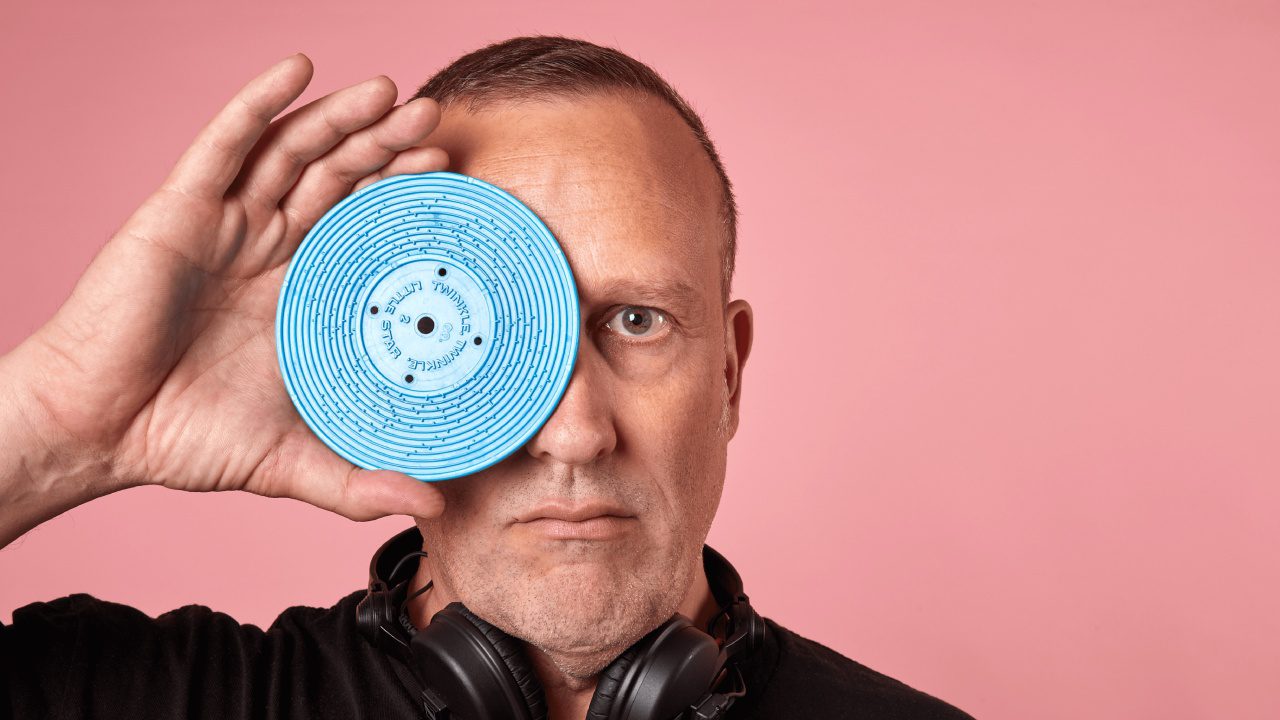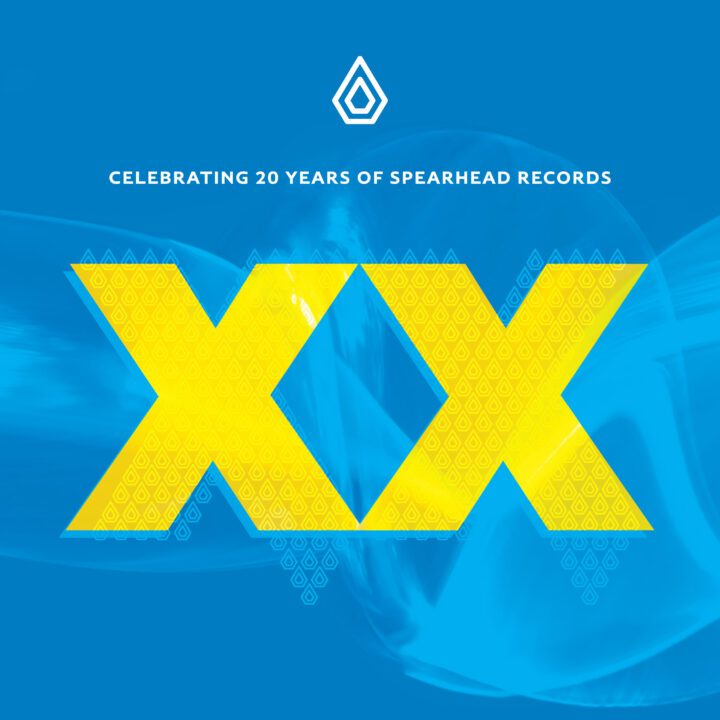
IDOL Insights: meet Spearhead Records
Spearhead Records, founded by artist BCee in 2005, has become a key label for drum and bass. Every day, founder Steve Jefroy champions melody and storytelling, through emerging and established talents, including Netsky, S.P.Y, Technimatic, Riya, Alix Perez, Lenzman and The Vanguard Project (BCee and Villem’s collaborative project).
Known for its uplifting melodies, powerful vocals, and driving beats, Spearhead consistently delivers music that resonates with fans worldwide. With its commitment to creativity and quality, the label has firmly established itself as a cornerstone of the drum and bass scene.
How did Spearhead get started, and how did it get to where it is today?
Back in 2001, I started a label with a friend called Rubik Records. Over time we realised that our visions were different: my friend wanted the label to stay small and release cool music here and there, while I wanted to build something with real impact in the drum and bass scene. I wanted something that felt real, not just a hobby.
So, I decided to start my own label: Spearhead Records. Looking back, it’s amazing to see Spearhead’s achievements—millions of streams, Radio 1 plays, and so much more. When it happens gradually, it’s easy to miss how big it’s become.
What I’m most proud of with Spearhead is the quality and longevity of the music. I wanted to release tracks that still sound fresh and interesting ten years later, and when I hear people playing tracks from the catalog that are 10 or 15 years old, that means the music has stood the test of time.
How does it feel to be celebrating the label's 20th anniversary? Do you have anything special planned?
It’s a big milestone, so I really wanted to mark the occasion properly. The plan is to release 24 singles across the year. I reached out to artists we’ve worked with over the years, as well as some new and emerging talent whose music I love. For example, London Elektricity—who I’ve admired for years and now count as a good friend—has contributed a track, which feels really special.
In addition to the singles, I’m planning to revisit the back catalogue. Rather than focusing on the obvious “best of” songs, I want to dig out a few hidden gems: tracks that might have flown under the radar the first time but still sound fresh today. These will be remastered, repackaged, and released toward the end of the year.

How has the label's identity developed? What makes a Spearhead artist?
One thing that’s often defined Spearhead Records is a focus on music that really stands out—tracks with something special, like a piano overlay or a vocal hook that sticks in your mind.
I’ve never signed anyone exclusively, and that’s intentional. For me, it’s not about locking artists in. What I’ve always looked for in artists is passion and dedication. Some of our early releases came from artists like Netsky, Hybrid Minds, S.P.Y, and Lenzman, who’ve gone on to be huge names. It wasn’t just their music that stood out; it was their drive and the sense that they’d still be here years later, whether they worked with me or not.
Over the years, a lot of artists I’ve worked with have gone on to bigger labels like Hospital Records. Personally, I’m fine with that because I know I can’t offer the same infrastructure, and I’ve never wanted to be a big machine. Spearhead is like a family business, and because of that, I want to work with people I genuinely like—people I can build a real relationship with. Even when a project doesn’t perform well commercially, if I believe in the person and the music, I might lose money, but I’ll still have a friendship, a strong connection, and the satisfaction of knowing we created something meaningful.
What makes this all unique, I think it’s that we’ve always intentionally tried to pour emotional lyrics, melodies, and stories into the drum and bass context.
In what ways has the label influenced the genres or communities it supports?
For me, it feels weird when people tell me I’ve had an influence on the scene, because most of the time, I’m just sitting in a room on my own, writing music and experimenting with samples. It’s happened so gradually, over such a long period of time, that it’s strange to think of it as influential. But I get it—music you listen to growing up does shape you, and it makes sense that it has an influence.
That said, I don’t feel any sense of importance. For me, I’ve just always enjoyed making music. I still feel incredibly grateful for being able to do it. It’s on my mind a lot lately, especially now at 48 years old. I’ve just released an album that has more plays than anything else I’ve ever put out in my career. It’s just nice that people are still interested in what I’m doing.
At the same time, I’m always conscious of staying original. I don’t want to follow trends or sound like everyone else. For example, I recently released a full vocal drum and bass album, but now I’m intentionally moving away from that because I feel like everyone else is doing the same thing.
Most of the demos I receive for the label sound similar. I want to push the boundaries within the drum & bass framework—still 174 BPM—but find ways to stand out. You’re not going to get anywhere by copying everyone else.
Do you recall one moment where you wanted to give up and what drove you to continue?
Starting a label can be really meaningful, but it’s also incredibly difficult. There are so many obstacles, especially when you’re independent and staying true to the music you love. Sometimes, you’re just trying to find ways to push back and keep going.
What I’ve realized from speaking to other independent label owners is that everyone feels the same struggles. And there have been countless times over the years where I’ve thought about getting another job. And, honestly, this time will probably come—but not yet.
One particularly bad time was when I was with a company called New Urban Music, my distributor at the time. Things were clearly starting to go south, and I remember asking my label manager to let me know if the company was going under. One afternoon, while I was out at the park with my family, I got that call. The next day, I rented a van, drove down, and loaded up thousands of vinyl records. The van was so full it was nearly dragging on the floor.
At the time, they owed me about £15,000, and I had no idea how I’d sort it all out. Luckily, another distributor called Veto stepped in but that experience was awful.
Sometimes you wonder why you’re still doing it. But then, there are moments that remind you why you started in the first place. Earlier last year, I played a DJ set in Kyiv: It was surreal. I met people who had been injured in the war and couldn’t fight anymore, and they told me my music gave them a bit of light in a dark time. I never thought that making drum and bass in my kitchen would one day result in my tracks being played in a warzone, with people singing along.
There’s also the personal impact my music has had on people. I’ll never forget one couple who told me they were on the brink of divorce. Then my track ‘Keep the Faith’ came on, and they decided to give their marriage another shot. Ten years later, they’re still together.
So, yeah, it’s been a wild ride. It hasn’t always been easy, but those moments, this type of connection make it all worthwhile.
Why do you think independence is a strength?
I’ve been working for myself since I was about 19, and, to be fair, I’ve struggled to work for other people. A couple of years ago, I was diagnosed with ADHD and it helped me understand myself better, including why I’m so driven creatively and why I need the freedom to structure my own days. That independence has always been really important to me.
Recently, out of curiosity, I looked at job listings in the music industry. Most of them were for data analysts, programmers, or roles completely detached from creativity. It’s a sign of where things are heading: more and more artists are getting signed not because of their music, but because of social media metrics or viral moments. But no one actually cares about their music—it’s all about numbers and trends.
For me, remaining independent is a way to avoid that trap. Creativity is so important, not just for making good music but for your mental health. If you’re creatively stifled, it’s genuinely bad for your well-being. I learned that firsthand. A while ago, I was working part-time for someone else, and I literally broke out in hives. I had no idea why at first, but a counselor explained that there’s research showing how suppressing creativity can manifest as physical illness. It blew my mind, but it made sense because I was living it.
That’s why I think independence is so important. It gives artists—and myself—the space to be creatively expressive. When you’re on a major label, it can become a grind. Independence should mean having the freedom to create and express yourself, and that’s what I’ve always tried to hold onto.
Meet our labels
- IDOL Insights: meet Jalapeño Records
- IDOL Insights: meet Heavenly Sweetness
- IDOL Insights: meet Nø Førmat!
- IDOL Insights: meet Bongo Joe
- IDOL Insights: meet Glitterbeat
- IDOL Insights: meet Erased Tapes
- IDOL Insights: meet Local Action
- IDOL Insights: meet Last Night On Earth
- IDOL Insights: meet Born Bad Records
- IDOL Insights: meet toucan sounds
- IDOL Insights: meet Bingo Bass
- IDOL Insights: meet B3SCI
- IDOL Insights: meet InFiné